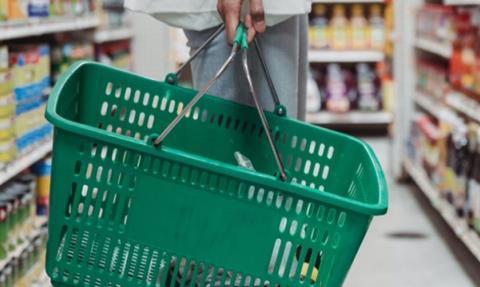Although down by 3% compared with 2020, Christmas grocery spending remained higher than it was pre-pandemic and sales were 8% stronger than in 2019, Kantar’s latest data shows.

Overall, take-home grocery sales reached £31.7 billion over the 12 weeks to 26th December 2021.
Fraser McKevitt, head of retail and consumer insight at Kantar, said: “People seized the chance to enjoy Christmas with friends and family after last year’s muted festivities, and grocery sales hit £11.7 billion over the month of December alone. This lofty spend figure is down just 0.2% on record 2020 sales when several areas faced restrictions and the data suggests that while there weren’t formal rules in place across the UK this year, many people celebrated at home again due to Omicron.”
McKevitt continued: “We can really see just how much spending accelerated in December compared with earlier in the year by looking at the average trend during March to November when sales were down by 2.5% against 2020.”
In-keeping with previous years, the busiest shopping day of the year was 23rd December. The 23rd saw the largest number of in-store visits since March 2020. McKevitt added: “Shoppers clearly trusted that supermarket shelves would remain well stocked and they didn’t feel the need to rush out much earlier to get their favourite festive treats.”
An “appetite to celebrate”
While spending on many traditional Christmas dinner items was broadly similar compared with last year, Kantar’s latest data suggests that people treated themselves and guests to a variety of additional Christmas treats.
Premium own-label sales broke records this Christmas and shoppers spent £627 million on supermarkets’ own upmarket lines over the four weeks to 26th December, an increase of 6.8% compared to 2020.
McKevitt explained: “The appetite to celebrate and splash out that little bit more this year pushed sales of luxury own-brand products up across the board. Tesco’s Finest and Sainsbury’s Taste the Difference are easily the largest premium own-label ranges, but we saw the fastest growth from other ranges such as Asda Extra Special and Iceland Luxury.”
Sales gains across the board
Despite rising Covid-19 case numbers, online sales fell in December by 3.7% against 2020 and accounted for 12.2% of sales. Individual retailers found it challenging to secure year-on-year growth over the Christmas period following last year’s highs, but every major grocer increased sales compared with the final 12 weeks of 2019.
Online specialist Ocado was the only retailer to buck the trend over the latest 12 weeks and grow versus last year, increasing its sales by 2.5%. At the same time, Tesco continued to gain market share, up by 0.6% to 27.9%, the highest it’s been since January 2018. Aldi, Lidl and Waitrose also grew their shares by 0.3%, 0.2% and 0.1% respectively.
Second-largest grocer Sainsbury’s now holds 15.7% of the market, with Asda on 14.2% and Morrisons on 10.1%. Independent retailers have a combined share of 1.6%. Meanwhile, 5.8% of the market belongs to the Co-op and 2.4% to Iceland.
Rising inflation adds £15 to grocery bill
Kantar’s figures also show that rising prices had a significant impact on consumers’ shopping budgets. Grocery price inflation reached 3.5% in December, adding nearly £15 to shoppers’ average monthly grocery bill.
Spring 2020 recorded faster price rises across the board as promotions were cut to maintain product availability amid the first UK Covid-19 lockdown. However, one would need to go back to January 2018 to see higher rates of inflation than those recorded at the end of 2021.
This story was originally published on a previous version of the Meat Management website and so there may be some missing images and formatting issues.












